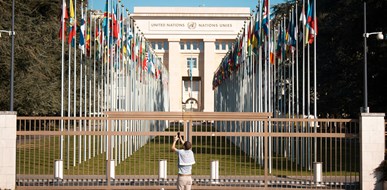-

[Exhibition] ‘Lens on law: Edges of proximity’
30 January 2025The T.M.C. Asser Instituut and the Royal Academy of Art The Hague proudly present “Lens on law: Edges of proximity” - a collective exhibition in West Den Haag, that explores the intersection of international law and visual arts. From 28 February until 14 March...
-

[Update] The Foreign Terrorist Fighters Knowledge Hub
29 January 2025The Foreign Terrorist Fighters (FTF) Knowledge Hub, an open-access online resource developed by the T.M.C. Asser Instituut and the International Centre for Counter-Terrorism (ICCT), has just been updated to incorporate recent developments surrounding states’ r...
-

[New publication] Are courts effectively protecting individual rights? Rule of law backsliding on national security matters
22 January 2025In their new article, researchers Rumyana van Ark and Tarik Gherbaoui examine the intersection between national security measures, judicial deference, and the rule of law. They highlight the dangers of normalising expansive national security provisions which c...
-

[Human Rights Council] United Nations to highlight Asser Institute call for transparency in Italy’s arms exports
14 January 2025On Monday 20 January, recommendations made by experts from the Asser Institute regarding Italy’s arms exports will be discussed at the 48th session of the United Nation’s Working Group on the Universal Periodic Review. According to these recommendations, Italy...
-

[New podcast episode] The rules of modern warfare and ancient traditions
19 December 2024What can ancient philosophies, theologies and laws teach us about ethical warfare today? A brand new episode of our JurisDictions podcast on international law takes you on a journey to explore humanitarian principles, from modern warfare to ancient traditions....








